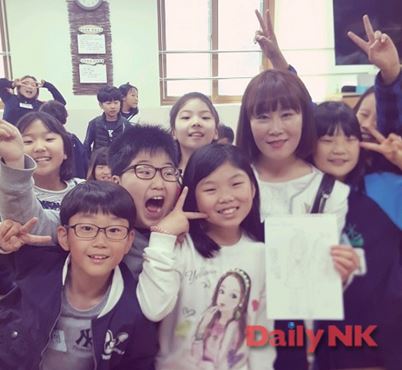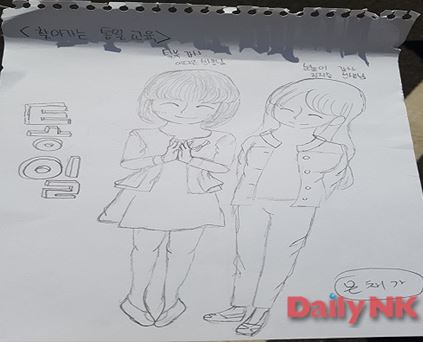Lee Da Eun was born in Ryanggang Province, North Korea, and has been living in South Korea since 2007. She currently works as a teacher on the subject of unification in schools across the country, with her class material covering the daily lives of North Korean residents and students. Lee says that she started the job to help spread awareness about North Korean society and that she feels rewarded when students ask pointed questions, even during break time.
“To become an effective teacher, you need to have appeal, determination and energy. I picked up these attributes because I served in the army for a long time in North Korea,” Lee said with a smile. But she was not always this confident.
Repeated efforts to assimilate…small habits can change life’s direction
Prior to becoming a teacher, she tried her hand at many different jobs through a job agency, including washing dishes at restaurants, being a housekeeper, and distributing flyers on the street. But she found it difficult to apply for jobs that require communicating with customers, due to her North Korean accent. Becoming frustrated at the limited range of jobs available to her, she decided to try and change her accent. Lee then invested countless hours in practicing South Korean pronunciation by putting a pencil in her mouth and listening to recordings of her voice.
She also made a habit of carrying a notepad to write down South Korean words and comparing them with the corresponding North Korean words. Thanks to these efforts, it wasn’t long before she became acquainted with the South Korean vernacular and changed her pronunciation.
These small daily habits changed her life and she can now work in more respectable full-time jobs. While working at the counter in a fitness club, she memorized the faces of all club members as she believed that personal greetings were far better than asking for each person’s name every time she handed over their locker keys. When some clients first asked her, “Where are you from?”, she used to tell them that she was from China but she now proudly tells everyone that she is from North Korea.
Lee received settlement education at Hanawon (Settlement Support Center for North Korean Refugees) after entering South Korea in 2007. At that time, there was no job consulting agency for defectors as is the case today, so she had difficulty deciding whether to go to college or find a job. She believes that more real-world experience programs can help people find their career path.
Difficult to succeed if you stay within the boundaries… real-world experience is critical
“I’m enrolled in a flower-arranging class at a university affiliated with Hanawon. There’s a huge difference between learning about it in a classroom and actually doing it. If there are more experience-based job programs supported by organizations and companies, it will be very helpful for North Korean defectors seeking employment,” Lee said.
“What’s more important than anything else is the determination and effort put in by each defector. It’s important to get yourself out there first. There are many ordinary citizens who are going through tough times in South Korea as well, and in comparison, North Korean defectors receive quite a lot of support from the government. So defectors must focus on overcoming their difficulties rather than blaming their situation.”
Lee added that she does not want South Koreans to regard defectors with special interest. The general perception of defectors has significantly improved, but they are still often seen as ‘people who have had it tough’ rather than as fellow countrymen. In addition, she notes that phrases such as ‘because they’re a defector,’ should be avoided because it can be discouraging. She argues that government support provided to defectors can be more helpful if given with a subtle level of difference to that received by everyone else.
Above all, Lee emphasizes that the defectors themselves should be willing to work hard in order to change perceptions. Her advice for defectors in their early days of settlement is that, “to settle well, one must avoid hiding in the safety zone just because you are lonely. It is of course not easy, but you should get yourself out there to experience as much as possible. If you do so, you will realize that there are many opportunities available, and that dreams can come true once you really start wanting them to.”
※ This article was written with support from the Korea Press Foundation.



















